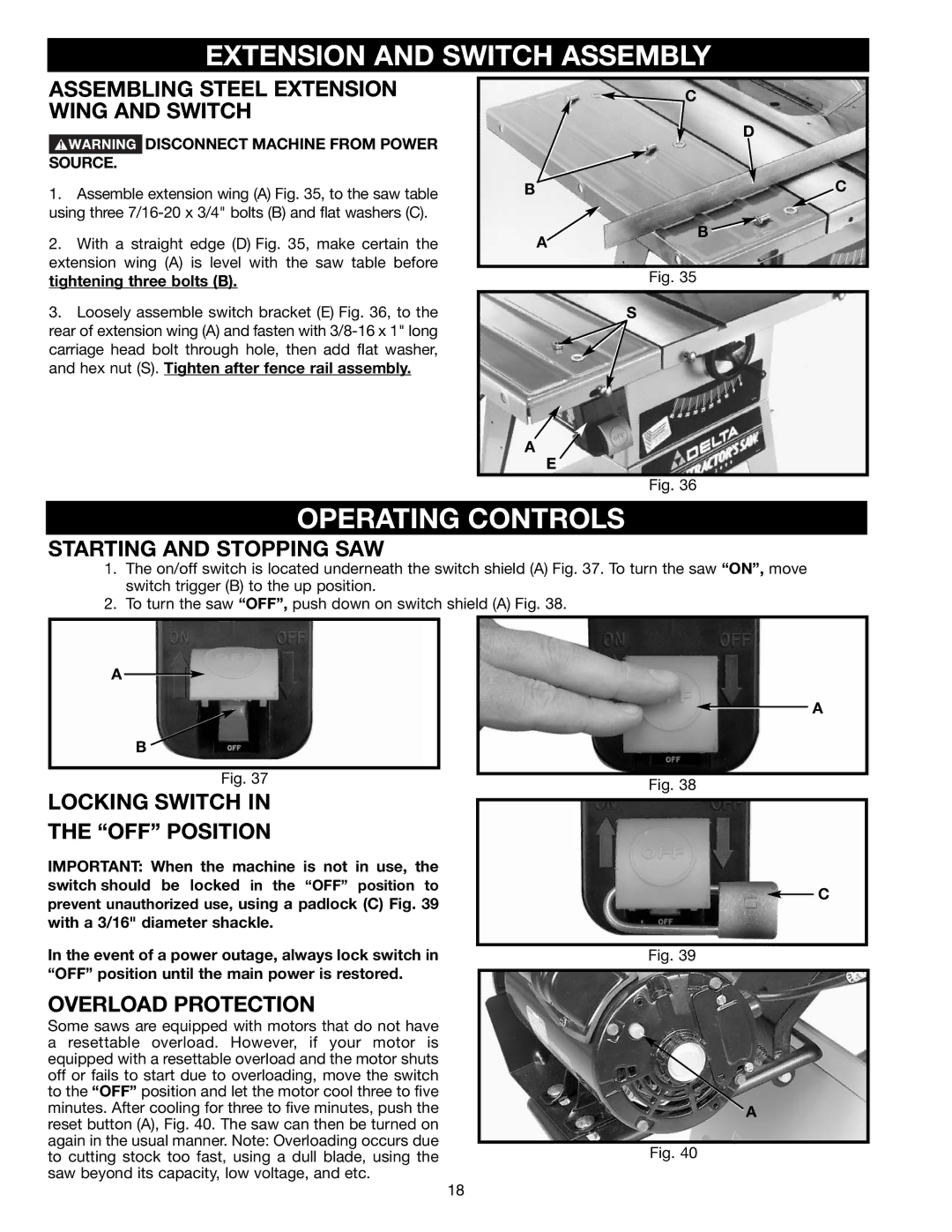
EXTENSION AND SWITCH ASSEMBLY
ASSEMBLING STEEL EXTENSION WING AND SWITCH
 DISCONNECT MACHINE FROM POWER SOURCE.
DISCONNECT MACHINE FROM POWER SOURCE.
1. Assemble extension wing (A) Fig. 35, to the saw table |
using three |
![]() C
C
D
BC
2. With a straight | edge (D) Fig. 35, make certain the |
extension wing (A) | is level with the saw table before |
A
B ![]()
tightening three bolts (B). |
3. Loosely assemble switch bracket (E) Fig. 36, to the |
rear of extension wing (A) and fasten with |
carriage head bolt through hole, then add flat washer, |
and hex nut (S). Tighten after fence rail assembly. |
Fig. 35
S
A
E
Fig. 36
OPERATING CONTROLS
STARTING AND STOPPING SAW
1.The on/off switch is located underneath the switch shield (A) Fig. 37. To turn the saw “ON”, move switch trigger (B) to the up position.
2.To turn the saw “OFF”, push down on switch shield (A) Fig. 38.
A
B
Fig. 37
LOCKING SWITCH IN
THE “OFF” POSITION
IMPORTANT: When the machine is not in use, the switch should be locked in the “OFF” position to prevent unauthorized use, using a padlock (C) Fig. 39 with a 3/16" diameter shackle.
In the event of a power outage, always lock switch in “OFF” position until the main power is restored.
OVERLOAD PROTECTION
Some saws are equipped with motors that do not have a resettable overload. However, if your motor is equipped with a resettable overload and the motor shuts off or fails to start due to overloading, move the switch to the “OFF” position and let the motor cool three to five minutes. After cooling for three to five minutes, push the reset button (A), Fig. 40. The saw can then be turned on again in the usual manner. Note: Overloading occurs due to cutting stock too fast, using a dull blade, using the saw beyond its capacity, low voltage, and etc.
A
Fig. 38
C
Fig. 39
A
Fig. 40
18
